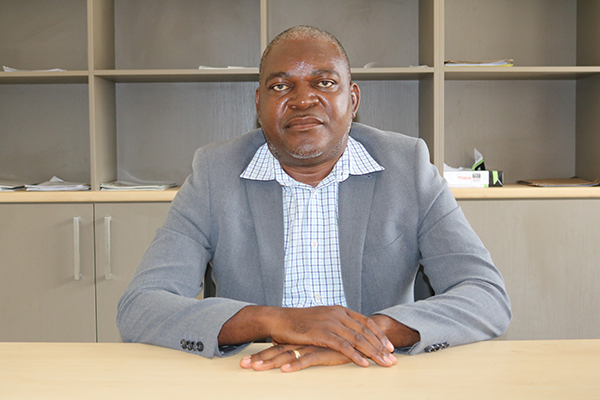Elizabeth Hiyolwa
NKURENKURU – While reflecting on his first year in office, the Kavango West chief regional officer listed the lack of road infrastructure, healthcare services and youth development as the critical challenge areas of the region.
In a recent interview with the Ministry of Information and Communication Technology, Mpasi Haingura outlined where intervention is needed for the region to make a meaningful change when it comes to development.
“Since Kavango is 90% rural, our residents depend on subsistence farming for a living –and now, these people are in the inland; there are no feeder roads,” he said, adding, “we need additional feeder roads that can connect our subsistence farmers to the main road so they can market their produce,” he said.
Haingura further stressed the service delivery or developmental implementation programmes for the Ministry of Health and Social Services in the region, which he described as a headache.
He said former president Hifikepunye Pohamba, in the last months of his presidency, attended a groundbreaking ceremony for a health facility, yet no construction has commenced.
“In 2014, to be specific, a groundbreaking ceremony was done in Kavango West for the construction of an intermediate hospital – and until today, in 2022, there are no significant plans on when this hospital will take off the construction,” the CRO alluded.
He explained they are aware of the economic challenges of the pandemic; thus, his office remains in constant communication with the health ministry – it is the key stakeholder in health provision, highlighting that “because for this nation to develop, we need healthy people. That’s why that one is very important.”
Another thorn in the flesh for the region Haingura outlined was the fact that the region does not have any youth infrastructure – be it for sports or any other facilities, despite having land that was donated by the Nkurenkuru Town Council three years ago.
“That land is still idling, and we are having sleepless nights from the youth whenever they ask because we are the leaders on the ground. They always knock on our door, and we have no answers to give them,” he said.
The CRO, however, stressed the regional leadership will continue engaging the ministry while referring to the recent engagement they had, adding, “we are still hopeful the day will come when we will also smile and be able to put a smile on the face of the youth of this region.”
During the interview, Haingura stressed the need for the public to understand how decisions are made, emphasising the development budget for the region explaining that the identification of a problem does not conclude it will be resolved immediately, as it needs to compete with other projects from other 13 regions.
“We need to understand the aspect of governance – that it is a cumbersome process and it does not say that if we are planning for a particular project, it can happen in a year or two,” he stated.



